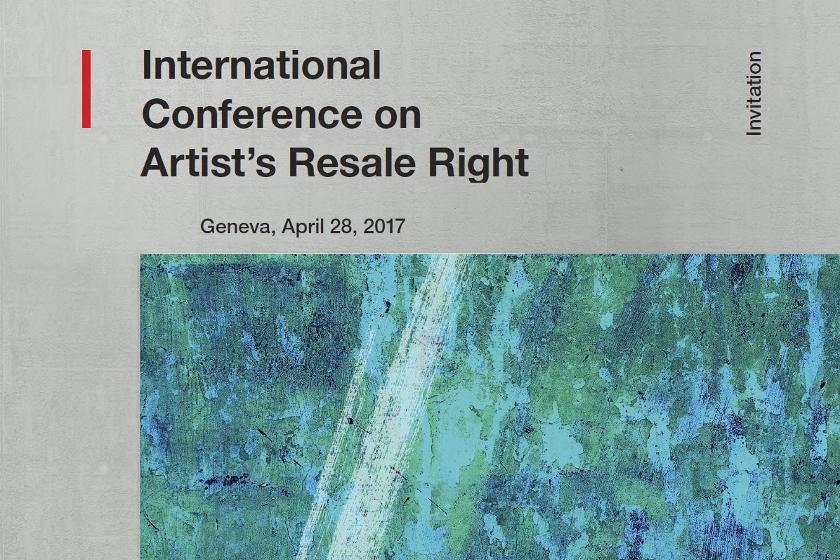Artists, Governments and Experts meet in Geneva to discuss International Adoption of the Resale Right for Visual Artists

Paris, 24th April, 2017 – Policy makers, artists and copyright experts will gather in Geneva this week to discuss expanding international adoption of the Resale Right of visual artists, a move that would give better protection and more income to artists globally.
The resale right grants artists a percentage of the sale price when their works are sold in auction houses or galleries. It exists in many countries, but many artists are losing out in countries where the right is not implemented into national law, such as the US, the world’s largest art market, China, Switzerland and Japan. The issue is now being discussed at the World Intellectual Property Organisation (WIPO), a Geneva-based UN agency.
Renowned visual artists including Mexico’s Julio Carrasco Breton, the UK’s Richard Wentworth, Weng Yan Cheng from China, Herve di Rosa from France and Canada’s Ionouit Mattiusi Iyaituk will join government ministers, diplomats and academics to debate the resale right in Geneva on Friday 28th April.
The conference will hear evidence of how the Resale Right could redress unfair treatment of visual artists compared to those in other repertoires, boost the income of artists and create new jobs in art markets around the world.
Momentum building
More than 80 countries, including the 28 members of the European Union, already grant the resale right to visual artists. The right plays a significant role in allowing artists to derive a fair return from the success of their work. In the countries where the right exists, it helps generate total royalty collections of some US$50 million (€44.9 million), amounting to 25% of total global visual arts collections, according to CISAC’s 2016 Global Collections Report. The right also brings more transparency to the art market and promotes the moral rights of visual artists.
The meeting, the first ever conference dedicated to the issue by WIPO, will consider ways of ensuring that the Resale Right is adopted by governments across the world and the benefits this will bring.
CISAC, the International Confederation of Authors and Composers, is leading the global campaign for the adoption of the visual artists’ resale right. This is a pressing issue for visual artists in many countries who, unlike creators in other sectors, are denied the ability to earn a continuous income from the commercial uses of their work.
Gadi Oron, Director General of CISAC, says: “The conference in Geneva is a very strong sign of the growing international momentum in adoption of the resale right. More than 80 countries have adopted the right so far, helped by a steady raising of awareness of its vital importance. Apart from its legal justifications, the resale right brings fairness, respect to creators, transparency to the art market and significant economic benefits. That is why there is such strong support for it from the artist community and from a growing number of governments around the world”.
Economic benefits
There is evidence of the benefits brought to visual artists by the resale right. In the UK, the visual artists society DACS (Design and Artists Copyright Society) says that it has distributed more than £50 million to over 4,000 artists and estates since the right took effect in 2006. In Australia, the resale right collections started in 2010. By October 2016, it had already generated more than 4.5 million Australian dollars for more than 1,275 artists.
The conference on 28 April will study the economic impact of the resale right on the art market and a possible future international treaty on the right.
